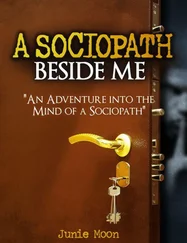We could have taken our chances on the winding road up to our house, but we decided instead to strike out on our own. For my brother, it may have been an attempt to shame my parents out of their bad behavior, the way that small children frequently run away, hoping to prompt their parents to cry heavy tears of remorse. For me, I wanted to see if we really did need my mom and dad, or if having to be a part of their family was all a fiction we were taught by church and television to keep us doing Saturday chores.
We didn’t really sit down to make a plan for our survival, but we knew we needed supplies, so we walked over to the nearby high school, where our older brother’s car was parked. Jim forced open a window while I reached my skinny arm in to unlock it. Inside was a treasure trove of ski equipment from a not-too-recent ski trip. We collected all of the knitwear for warmth and protection for the days ahead, and since we didn’t have anything to carry the stuff in, we wore all of the clothes in layers upon layers. Each of us put on several hats, pairs of gloves, and jackets, many of which were grossly oversized. We looked ridiculously overdressed for a Southern California late afternoon, piled up with knit caps and gloves, but our minds were on surviving through the coming months.
We were very hungry. The obvious solution was to beg, and we were conveniently dressed for the occasion. We tried to find a piece of cardboard and a marker to make a sign but we only found some college-ruled lined paper and ballpoint pens. (Now when I see a beggar on the street, I often wonder at his resourcefulness in finding a thick permanent marker, a piece of cardboard, and scissors or a knife to cut it into an adequately sized rectangle.) But the street was in a forested, residential area and there was no traffic to which we could appeal. We just hung out, sweating in our homeless-style knitwear and kicking dirt. I’m not sure how long we stood there before we got bored and hungry and decided to give in.
I never resented my parents for leaving us that day. I don’t know why they left. Maybe they just willed us to disappear from their minds for a little while. If they thought about it at all, I think they believed that the only realistic consequence was that we might have suffered a bit having to make that precarious walk home. If I resented them for anything it was for making us believe that they wouldn’t leave. They bought into the “fiction” that we were a conventional family, the kind that looked out for each other, and that they were conventional parents. It wasn’t that they didn’t love us—I know they did in their own way—but at the same time it’s not like it mattered; their love served no purpose to me. Their good intentions did not make my life any better, rather they seemed only to insulate them from the truth, allowing them to live in a dark world of collusion through which reason and objective facts could not penetrate. Anything that didn’t leave permanent physical scars requiring explanation to their friends and neighbors went unnoticed.
I was raised as the middle child in a Royal Tenenbaums– ish family with a violent and shaming father and an indifferent, sometimes hysterical mother. I had a group of four siblings that banded together as if we were a small but well-trained militia. Growing up we had the distinct impression we were better than everyone else, and that the only people who could understand and appreciate us were the other members of our family.
My parents married young, my mom at twenty and my dad twenty-three. My mother had been coerced by her own dysfunctional family into dropping out of college. Once back home, she dated aggressively, trying out men who could save her. I am not sure why she chose my dad, but she did it quickly, pinning him down and asking if he was going to propose only a few months after meeting him. She gave birth to my oldest brother in the first year of their marriage and continued steadily to have babies after that.
My father was a lawyer. When he and my mother were dating, he worked for a big law firm, but after that job fell apart he began his own small-time legal practice. He liked to think of himself as a modern-day Atticus Finch, sometimes accepting baked goods as payment from his clients. He was phenomenally unreliable as a breadwinner, and we often came home from a day at the amusement park to find that the power had been shut off, because we were months behind in paying for our electricity. He spent thousands of dollars on expensive hobbies, while we were bringing a handful of oranges from our backyard to school for lunch. The year I was twelve he didn’t file a tax return. He owned his business, hadn’t paid or withheld any taxes all year, and then just didn’t feel like paying them when April 15 rolled around. Of course he got audited and whatever remained of our financial security evaporated.
Much more serious than any financial hardships I experienced, however, my father’s emotional and moral hypocrisy taught me not to trust emotions or anything else that couldn’t be backed up with hard, indisputable fact. If my heart turned hard, I believe it was in response to his maudlin displays of feelings and insincere appeals to virtue.
I am not sure how other people perceived my father, but I know that he tried very hard to present himself as a good man and a good parent—to the world, to himself, and to us. He liked to think of himself as an admirable person, and almost everything he did was in service to this desire. He had a habit of listing his achievements, as if he carried his own mental dossier in his head for the purpose of recitation: his bar association, his service to clients, his standing in the church, and most important, his philanthropic ventures. He needed the world to know that he was a giving, generous person.
My parents were involved in some of our school activities, particularly the musical ones. Sometimes my dad ran lights for my high school band performances while my mother accompanied the choir members. I think they must have been pillars of our provincial little society. Once we were running late when, in the car on the way to a concert, I realized I had forgotten to bring my instrument. We did not risk their missing their engagements by turning back; instead, I stood in the wings while my mother sang and my father ran the house lights, finding nothing unusual about my parents participating in my school event while I was excluded.
Whenever my father behaved badly, I think he felt more disappointment in betraying that image of himself than for damaging us. It didn’t matter whether he really was this ideal person; it only mattered that he looked that way, even to himself. I could not respect how easily he could deceive himself. We would watch sad movies together as a family, and he would turn to my mother with tears in his eyes, holding out his forearm and exclaiming: “Look! Goose bumps!” He wanted desperately for us to witness evidence of his ability to feel, to be human, and he needed our affirmation of this fact more than anything else.
One day when I was around eight years old I was watching a news special with my father when I made a callous remark about a disabled child. He asked in horror, “Have you no empathy?” I had to ask him what he meant. I just didn’t know the word, but he acted like I was a monster. The message was clear: His feelings and sense of self-righteousness made him a paradigm of humanity; my lack of feelings made me a blemish on his good name.
It’s hard to overstate how much I loathed him for these very simple things. The very first recurring dream that I can remember was about killing him with my bare hands. There was something thrilling about the violence of it, smashing a door into his head repeatedly, smirking as he fell motionless to the floor, no longer able to parade around the globe in his imagined greatness. It was reassuring to know that I could do it if I needed to, and my dreams were a place where I could practice and plan for it—working out and relishing every detail of quieting him from our lives.
Читать дальше












